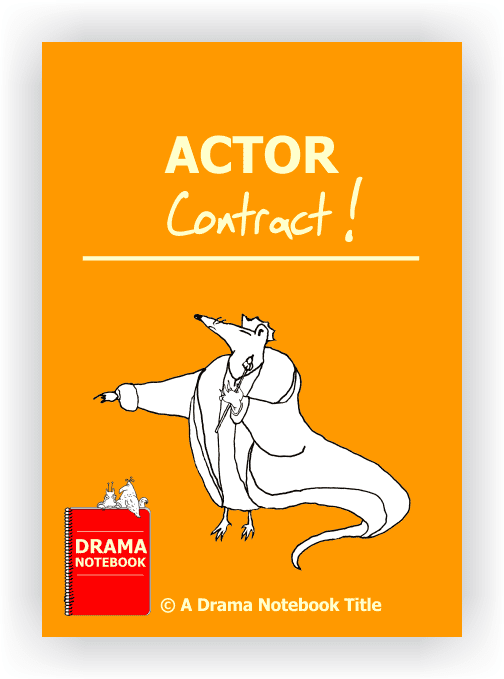
Are you in charge of putting on a short play with children or teens? Even if you have a background in theatre, this may be a daunting task. Here are a few tips to help you succeed!

Tip One...
Set realistic expectations.
Parents and administrators often have unreasonable expectations about how long it will take, how much money it will cost, and how many students can realistically be included in a production. This can quickly lead to frustration and burnout. In professional theatre, the rule of thumb is one hour of rehearsal time for every minute of show time. In educational theatre, you can get away with less rehearsal time, but it’s wise to schedule more rehearsal time than you think you need.
Before committing to take on too much, take some time to create a realistic timeline, budget parameters, and number of students you can accommodate.
Tip Two...
Choose the right play/musical.
Make sure that the piece you select meets the following criteria:
- A play that you are personally excited about.
- Age/ability appropriate for your students.
- Affordable royalties/can obtain performance rights. (Plays for kids and teens on Drama Notebook are royalty-free when no admission is charged.)
- Has parent/community/peer appeal.
- Has an appropriate number of parts.
- Can be produced with the resources you currently have.
- Can be properly rehearsed within your time frame.
Helpful Resources:
How to Put on a Themed Show
How to Put on a Stress-Free Holiday Show
Show and Camp Themes
Tip Three...
Ask for commitments.
Make it clear that for the show to be a success, all parties involved must commit to the entire process. This means that if administrators grant you rehearsal space and a budget, they must follow through on that and give your group a guarantee that you can use the space, etc. Also, ask young actors to agree to attend every rehearsal. In professional theatre, actors sign contracts when committing to a show. Create an actor’s contract for your show, or download one below.
Helpful Resources:
Student Actor Contract
How to Make Drama Class Agreements

Tip Four...
Recruit help.
School productions are notoriously understaffed. Here is a list of positions you may need to fill to produce your play. Adapt this list according to your situation, but make sure that no one person takes on too many roles!
Sources of help can include: parent and teacher volunteers, high-school or college student interns, paid assistants, retired teachers, etc. Working on putting together a performance with children can be a joyful experience, so it’s often easy to find people to help.
If you are new to teaching drama or putting on a play with kids and teens, you may be inclined to spend a lot of additional time and effort to make your show successful. However, drama teacher/director burnout is common because of the work involved. Give yourself and your cast the blessing of extra hands on deck!
Director
Assistant Director
Music Director
Choreographer
Stage Manager
Set Designer
Lighting Designer
Costume Designer
Sound Designer
Prop Master
House Manager
Technical Director
Set builders
Light/sound technician(s)
Publicist/Marketing Manager

Tip Five...
Cast your show for success.
Set up auditions, making sure that the actors know what is expected of them when they audition (bringing one-sheets, performing monologues, auditioning with sides, performing a song, etc.). During the auditions, bring actors in one at a time and have them audition only in front of the appropriate personnel (director, music director, choreographer). Cast actors not only for their talent and physical appearance but also for their ability to memorize lines, take direction, and commit to the entire process.
When working with younger students (ages ten and under) on a casual performance, you may wish to employ a less competitive approach. Download our tutorial on how to cast younger students.
Tip Six...
Create a show calendar and rehearsal schedule.
Together with your assistant director and stage manager, make a list of everything you will need to put on your show. Working backward from opening night or the performance date, put these tasks on your calendar. Next, create a rehearsal schedule. Distribute both to your cast and crew, along with a contact sheet for everyone involved in the production.
Helpful Resources:
Rehearsal Schedule template
Play Rehearsal Strategies to Keep Students Engaged
Rehearsal Notes Template for School Play
Production Meeting Checklists
Light Cue Sheet
Sound Cue Sheet
Prop List Template
House Manager Checklist
Tip Seven...
Establish clear rules and guidelines for your actors to follow.
Create a list of expectations regarding the rehearsal process and the performance. It may include things such as: no cell phones allowed in the rehearsal space; actors must be off-book by a certain date or dates; actors may miss no more than one rehearsal before being taken out of the show; actors must treat one another with respect; etc.) Present the rules firmly and clearly. Be prepared to calmly dismiss any actors who violate the trust of the group by ignoring the rules one too many times. Deep down, nearly every student appreciates strict guidelines and structure. It allows them to feel safe and encourages them to deliver their best work.
Helpful Resources:
Backstage Expectations
Tips for Staging Shows with Kids and Teens
Tip Eight...
Take time to build an ensemble.
Actors must develop trust in one another in a relatively short period. Starting the rehearsal process with bonding activities and warm-up activities can help your actors quickly learn to support each other. This allows young actors to feel safe enough to let their creative selves shine! Don’t skip this crucial step if you are working with young actors who are performing for the first time. The goal of educational theatre is not to put on an elaborate show. Instead, it is to give students a positive experience of performing.
Helpful Resources:
Drama Warm-ups
70 Ensemble Building Games
Tip Nine...
Keep your cool and enjoy the process.
Remember that this ought to be a fun experience for everyone. When you feel stressed or over-burdened, check in with yourself and ask yourself what you need. It may be that you need more help. It may be that you need to learn better classroom management skills. It may be that you need to lower your expectations or the expectations of others. For many students, this may be their first experience with performing, and it’s more important that the students have a positive experience than leave completely turned off from theatre arts.
You have the wonderful opportunity to help students feel confident about sharing their creativity, and that could stay with them for their entire lives. Try to give yourself the gift of plenty of support along the way!
More Helpful Resources:
How to Write Bios for Your Program
Play Program Example
Putting on a Play Involves More than Finding a Script
Drama teachers and those who direct plays with children often find themselves overwhelmed.
Drama Notebook can make your job much easier.









